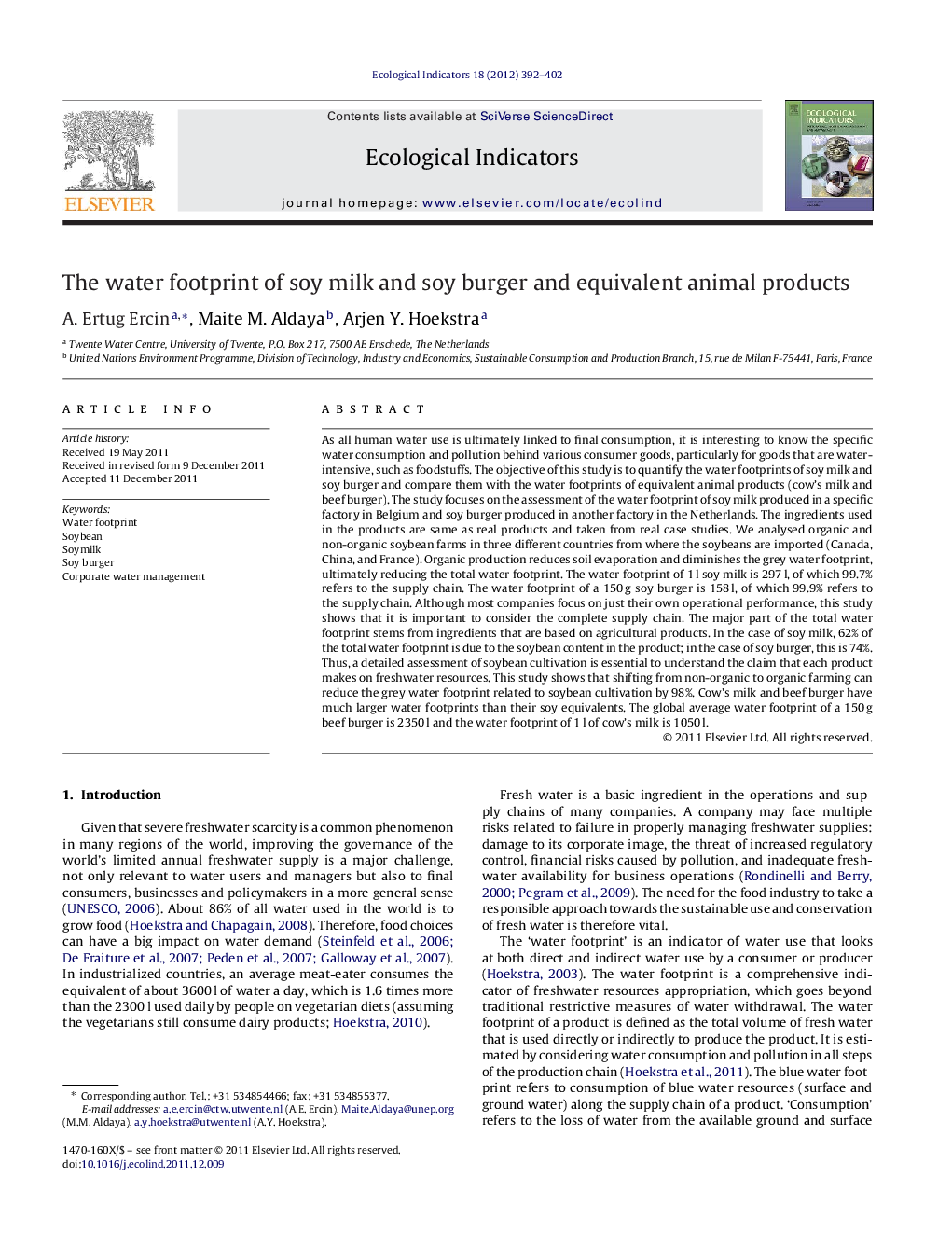| کد مقاله | کد نشریه | سال انتشار | مقاله انگلیسی | نسخه تمام متن |
|---|---|---|---|---|
| 4373796 | 1617182 | 2012 | 11 صفحه PDF | دانلود رایگان |

As all human water use is ultimately linked to final consumption, it is interesting to know the specific water consumption and pollution behind various consumer goods, particularly for goods that are water-intensive, such as foodstuffs. The objective of this study is to quantify the water footprints of soy milk and soy burger and compare them with the water footprints of equivalent animal products (cow's milk and beef burger). The study focuses on the assessment of the water footprint of soy milk produced in a specific factory in Belgium and soy burger produced in another factory in the Netherlands. The ingredients used in the products are same as real products and taken from real case studies. We analysed organic and non-organic soybean farms in three different countries from where the soybeans are imported (Canada, China, and France). Organic production reduces soil evaporation and diminishes the grey water footprint, ultimately reducing the total water footprint. The water footprint of 1 l soy milk is 297 l, of which 99.7% refers to the supply chain. The water footprint of a 150 g soy burger is 158 l, of which 99.9% refers to the supply chain. Although most companies focus on just their own operational performance, this study shows that it is important to consider the complete supply chain. The major part of the total water footprint stems from ingredients that are based on agricultural products. In the case of soy milk, 62% of the total water footprint is due to the soybean content in the product; in the case of soy burger, this is 74%. Thus, a detailed assessment of soybean cultivation is essential to understand the claim that each product makes on freshwater resources. This study shows that shifting from non-organic to organic farming can reduce the grey water footprint related to soybean cultivation by 98%. Cow's milk and beef burger have much larger water footprints than their soy equivalents. The global average water footprint of a 150 g beef burger is 2350 l and the water footprint of 1 l of cow's milk is 1050 l.
Journal: Ecological Indicators - Volume 18, July 2012, Pages 392–402